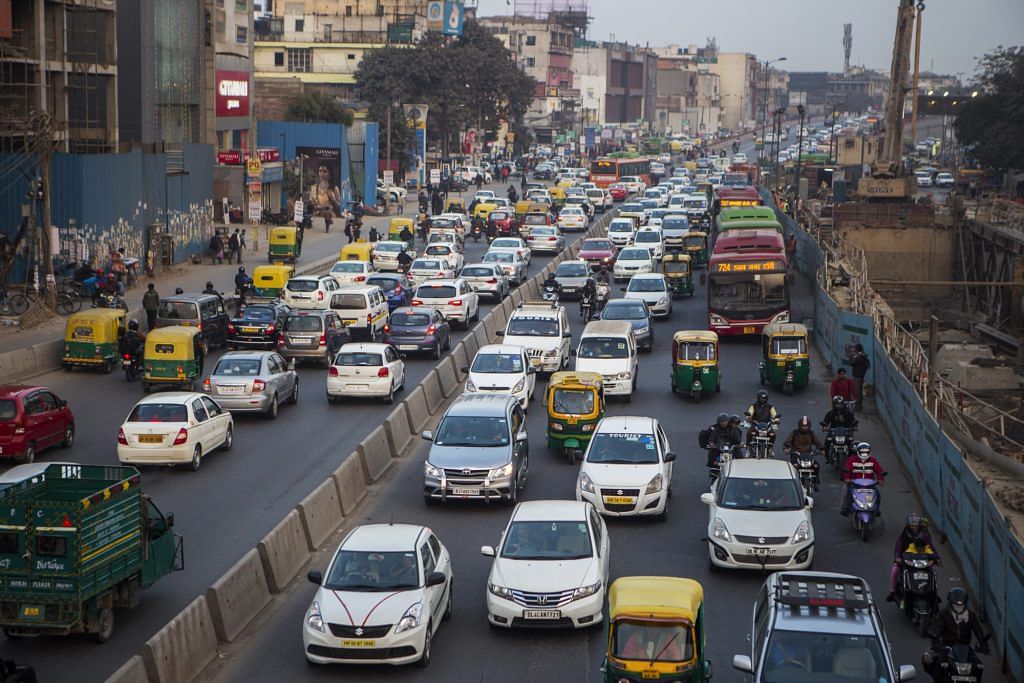New Delhi: In a judgment that could have far-reaching consequences, the Supreme Court Monday clarified that a private car travelling on a public road can be deemed as a ‘public place’.
The court has essentially overruled a 1999 Kerala High Court judgment which had said that a private car on a public road would still constitute a private space. The verdict can be interpreted to mean that any activity that is not allowed in a public space, such as smoking, will now not be allowed in a private car on a public road either.
The Supreme Court bench of Justices Ashok Bhushan and K.M. Joseph said that while the public may not have access to a private vehicle as a matter of right, but it would definitely have the opportunity to approach the vehicle on a public road.
The court further noted that ‘public conveyance’, which was omitted from the 1978 notification that defined public space, was introduced in the 2016 Bihar Excise (Amendment) Act. “The statutory amendment also did away with the difference between public and private conveyance,” the court noted.
Also read: Two Supreme Court benches, two different takes on freedom of speech and expression
The case
The top court’s clarification came on a plea filed by Satvinder Singh, through his lawyer, Rahul Bhandari. Singh challenged a Patna High Court order that dismissed his plea to set aside a trial court order which took cognisance of offences under Bihar’s 2016 prohibition law.
In 2016, Singh was travelling along with others in their private vehicle from Giridih, Jharkhand to Patna, Bihar, which is almost 236 kilometres away. At Rajauli, which is on the Jharkhand-Bihar border, their car was stopped, searched, and the occupants were subjected to a breath-analyser test.
The state officials did not find alcohol in the car, though Satvinder, who was a passenger, tested positive on the breath-analyser. Singh was then charged and booked under the relevant provisions of the law.
Even if a person consumes liquor outside the state borders but enters the territory of Bihar and is found in a state of drunkenness, he is liable to be penalised under Section 37(b) of the 2016 Prohibition Act.
However, Singh argued that at the time of his arrest, Section 37(b) had not yet been introduced, and hence, he was not liable for being found drunk in Bihar.
Partial victory
The court agreed with Singh partially. “A person who consumes liquor in a different state cannot be fastened with a penalty under Section 53(a) unless there is some evidence to prove that consumption of liquor by the accused has taken place in the state of Bihar,” the verdict read.
“We have to further take into notice that private vehicle of the appellants was intercepted when it was on the public road. When private vehicle is passing through a public road it cannot be accepted that public have no access,” the verdict read.
“It is true that public may not have access to private vehicle as matter of right but definitely public have opportunity to approach the private vehicle while it is on the public road. Hence, we are not able to accept the submission that vehicle in which appellants are travelling is not covered by definition of ‘public place’ as defined in Section 2(17A) of the Bihar Excise (Amendment) Act, 2016.”
Bihar had imposed total prohibition on all forms of liquor in April 2016. The state legislature had enacted Bihar Prohibition and Excise Act, 2016, to enforce, implement and promote complete prohibition of liquor and intoxicants in the state.
Also read: SC to hear plea seeking probe into ‘brutal’ torture of 2 Muslim men in Bihar police custody
